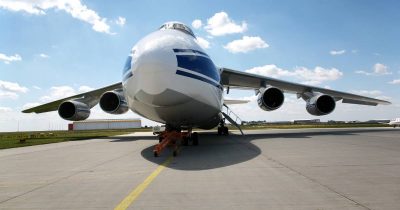Shippers are switching to airfreight instead of sea freight to mitigate the effects of the Red Sea crisis. CNBC reports air freight volumes soar as the situation causes delays.
Bjorn Vang Jensen, executive director for international transport at engine manufacture Cummins says: “With every manufacturing company, there’s a tendency to reach immediately for the airfreight lever unless you’ve got an adult in the room who says, ‘When do you need this by?’ Before you pull the airfreight lever, maybe you should ask yourself, ‘Is there a rail option? Is there a sea-air option? Is there a deferred air option?’”
Here’s a scenario: You are a manufacturer about to launch a new car. You have parts being delivered via the Red Sea, but need these parts urgently so production can continue. Your company has spent months planning this new car release. Your only option to save the day is air freight. Air freight often arrives next-day. Ocean freight takes a few weeks.
The ongoing crisis is costing companies. On January 9, Locate2u News highlighted the surge in costs, with Christian Roeloffs, co-founder and CEO of Container xChange saying that recent disruptions are poised to escalate operational costs, adding significant strain, while concurrently exerting downward pressure on profits.
Importers and exports may be holding their breath, watching the Red Sea situation in the hope that the crisis ends soon altogether.
The importance of the Red Sea in logistics
The Red Sea is a crucial corridor connecting the Mediterranean Sea, Indian Ocean, and beyond. Its strategic location gives shippers access to Europe, Asia, and Africa. The Red Sea route is the natural sailing route between these regions.
The impact on business had been massive, with some shipping lines having to suspend routes and re-route vessel sailings to accommodate customers. To keep business moving, shipping companies have chosen to divert shipments around the Cape of Good Hope.
Hapag-Lloyd has taken the decision to avoid the Red Sea. “According to clause 18 of our bill of lading ‘Matters affecting Performance,’ we have had to take the decision to avoid the Suez Canal and the Red Sea with immediate effect, and instead route our ships around the Cape of Good Hope.”
The shipping company has a live ticker of the situation in the Red Sea here.
Meanwhile US retailer Target is experiencing disruptions due to shipments from India and Pakistan.
Benefits of shipping air freight
- Speed: Companies may need stock urgently and choose air freight as it’s a much faster option than ocean freight. The Red Sea crisis may force manufacturers and store owners to look to air freight to prevent a serious shortage in their production line or store shelves.
- Reliability: Airlines run strict schedules. These schedules make it a reliable option to air freight cargo. Fresh produce is often flown via airfreight so items arrive fresh at a destination.
- Efficiency: Shipping by air freight is a great time saver. A manufacturer may need an urgent part to complete a project. Placing the item as air cargo will allow the manufacturer to save time instead of waiting a few weeks for ocean freight to arrive in port.
Share this article
About the author
Sharl is a qualified journalist. He has over 10 years’ experience in the media industry, including positions as an editor of a magazine and Business Editor of a daily newspaper. Sharl also has experience in logistics specifically operations, where he worked with global food aid organisations distributing food into Africa. Sharl enjoys writing business stories and human interest pieces.












